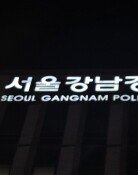Remove populist welfare plans from 2012 budget
Remove populist welfare plans from 2012 budget
Posted September. 28, 2011 03:28,
The government has fixed next years national budget at 326.1 trillion won (277 billion U.S. dollars), up 17 trillion won (15 billion dollars) or 5.5 percent from this year`s figure. It has pledged to achieve the three goals of securing fiscal soundness, job creation and improvement of social welfare. Predicting economic growth for next year at 4.5 percent, however, seems too optimistic and setting its income revenue projection accordingly is somewhat unreasonable. Global organizations and domestic think tanks say the economy will grow between 3.6 and 4.4 percent next year, but these figures will likely be adjusted downward. Koreas 500 largest listed companies plan to reduce next years investment and employment from those of this year. If the economy contracts in the aftermath of the fiscal crisis in Europe and growth declines one percentage point from projections, a tax shortfall of 2 trillion won (1.7 billion dollars) will occur and make it impossible to meet the revenue target without having to issue government bonds. For Korea to reduce fiscal jitters, it should present a conservative outlook for economic growth and remove elements of waste from spending plans accordingly.
The planned injection of one third of the growth in the state budget for next year into health and welfare reflects demand by the political circle ahead of next year`s presidential and general elections. The welfare budget plan, valued as much as 92 trillion won (78 billion dollars) including 1.5 trillion won (1.3 billion dollars) to help students cover their college tuition, accounts for a record 28.2 percent of overall expenditures. The government appears to have effectively surrendered to the populist welfare competition between the ruling and opposition parties. French intellectual Jacques Attali urged his government to not pass the burden to the next generation to provide welfare needed for the current generation. Choi Gwang, a former health and welfare minister who is now a professor at Hankuk University of Foreign Studies in Seoul, said, Rather than the simple introduction of welfare policies, Korea must form a public consensus on the distribution of welfare benefits and who will share the burden of welfare costs.
Ajou University professor Hyeon Jin-gwon said, Economic growth through expansion of social welfare makes no sense. If rival parties compete against each other over a welfare budget plan, which is raised by the government, to win points in the National Assembly, Korea will inevitably suffer deteriorating fiscal health. If politicians blindly pursue partisan interests to secure votes in elections even after looking at Europe, which is struggling amid a severe fiscal crisis, this will truly constitute bad politics that will pose a big threat to the nation and people, and do more harm than good.
Job creation is the most effective means of expanding welfare. The government, however, should only use the method of creating jobs through social welfare assistance as a short-term measure in an economic crisis. Instead, Seoul should use a microeconomic policy that focuses policy on transforming the nations industrial structure into one centered on the service sector, and thus expand the market by each sector or increase productivity.
The government said it drafted the budget plan based on a commitment to achieving a balanced budget by 2013. Yet ample elements of waste should be removed. All the elements of budgetary waste as unveiled by the parliamentary inspection of the government should be filtered out in the upcoming parliamentary budget review of next years budget. The circumventive practice of pork barreling for their own constituencies by ruling and opposition party lawmakers should not be repeated, either. The ruling and opposition camps should recognize the grave state of the global fiscal crisis and conduct budgetary reviews in a way that assures that social welfare that does not destabilize fiscal stability.







